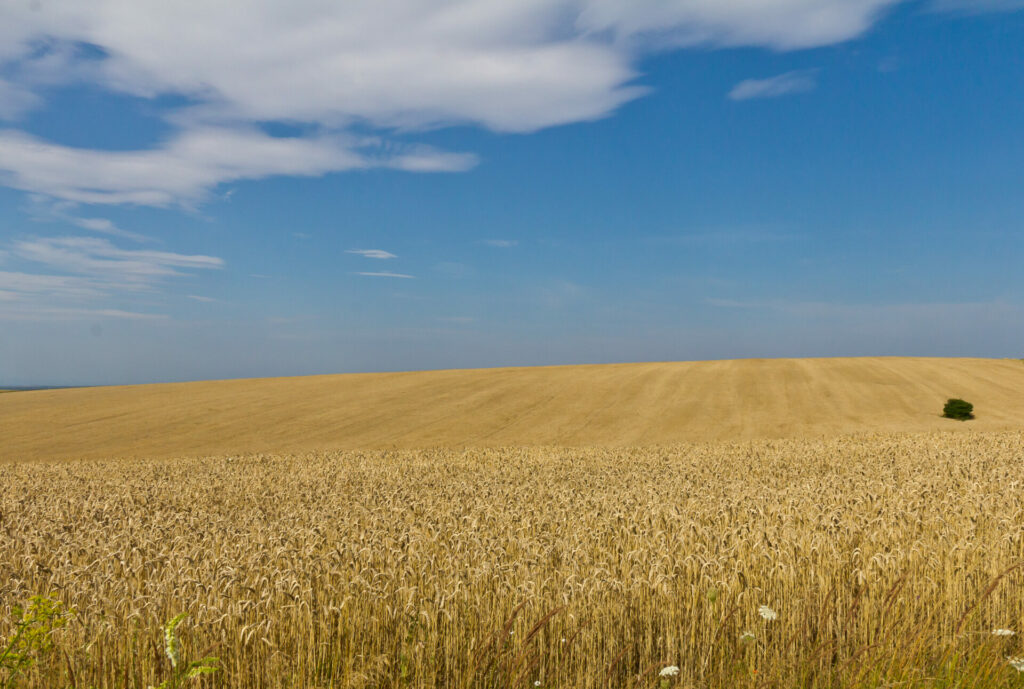The global food crisis arising from the conflict in Ukraine is resulting in a human catastrophe and will pose a big political challenge for governments, the World Bank has warned.
At the end of March, food inflation in Belgium climbed to 4.63%, the highest figure since 1983. The World Bank has now calculated there could be a "huge" 37% increase in food prices, the body's President David Malpass said in an interview with the BBC, on the fringes of recent IMF-World Bank meetings.
"It's a human catastrophe, meaning nutrition goes down. But then it also becomes a political challenge for governments who can't do anything about it, they didn't cause it and they see the prices going up," he said.
Russia and Ukraine account for about 40% of wheat imports in Europe and about 75% or more in Central Asia and the South Caucasus.
This evening, I joined @G7 leaders to discuss support for Ukraine, the global damage from Russia's invasion & the WBG response, including health preparedness.
The @WorldBank Group is committed to helping Ukraine & those affected by the war. — David Malpass (@DavidMalpassWBG) April 20, 2022
Climate change, causing storms and droughts that are destroying harvests worldwide, and rising energy costs are also fuelling the food crisis, however, the Russian invasion of Ukraine resulted in price rises being "broad and deep," Malpass said.
"It's affecting food of all different kinds oils, grains, and then it gets into other crops, and corn crops because they go up when wheat goes up."
Poorest are worse off
The Europe and Central Asia region's economy is forecast to shrink by 4.1% this year, compared with the pre-war forecast of 3% growth. "This would be the second contraction in as many years, and twice as large as the pandemic-induced contraction in 2020," the World Bank said.
Developing countries in this region and across the world are expected to be impacted worst. Malpass warned that, if the crisis continued, it could push hundreds of millions of people into poverty and result in a decrease in nutrition, an issue "magnified for [the] poor", who will "eat less and have less money for anything else such as schooling."
In the world’s poorest countries, food accounts for at least half of the total expenditures of households in low-income countries. In 2008, the food crisis brought on a significant increase in malnutrition, particularly in children, the organisation stated. This also resulted in school drop-out rates of as high as 50% among children from the poorest households.
Related News
- IMF Covid-19 loans will hit the world's poorest with austerity measures
- War in Ukraine could cost Europe up to 1.5% of growth, says OECD
He compared the situation to the Covid-19 crisis, which also hit the poorest the hardest. "It's really an unfair kind of crisis."
Global stockpiles of food are large by historical standards, but there will have to be a sharing or sales process to get the food to where it is needed, according to Malpass.
Meanwhile, the crisis comes on top of the existing calamity for the poorest countries, which are unable to service their large pandemic debts. According to the World Bank, as many as 60% of the poorest countries right now are either in debt distress or at high risk of being in debt distress.
"We have to be worried about a debt crisis, the best thing to do is to start early to act early on finding ways to reduce the debt burden for countries that are on have unsustainable debt, the longer you put it off, the worse it is," he concluded.

